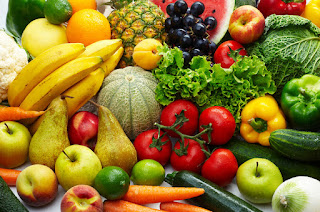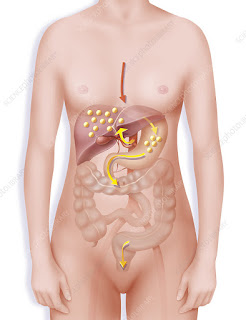10 DAILY HABITS THAT DESTROYS KIDNEY
You might be shocked to hear that over 20 million Americans may have some form of kidney illness, and a large number of them are ignorant of their condition. Kidney illness is a severe condition that can affect your immune system, heart, bones, and even your brain. Did you know that certain everyday activities you perform without much consideration may be seriously damaging your kidneys without you even recognizing it? Moreover, it may cause renal failure, for which survival requires dialysis or a kidney transplant. Let's start with the top 10 daily habits that can damage your kidneys so you can prevent kidney disease before it's too late. 
Many people turn to over-the-counter medications to lessen their agony. Analgesics and ibuprofen are common over-the-counter pain relievers that people use to relieve their discomfort, but these drugs may be harmful to their kidneys. harm your kidneys severely, especially if you take them frequently or in high quantities, have renal illness, or both. As per the National Kidney Foundation, internal organs can lead to decreased blood supply to the kidneys and inflammation and scarring of the renal tissue. What precautions can you take against medicines that could harm your kidneys? Analgesics like acetaminophen and aspirin can also be harmful to them, particularly if used too often or excessively? For those with chronic pain, it is important to use them sparingly and never exceed the prescribed dosage. Discuss alternate coping mechanisms with your physician. Seek advice from your physician regarding alternative treatments such as physical therapy, acupuncture, or meditation. The consumption of excessive amounts of salt can be detrimental to your kidneys because it contains sodium, which can elevate blood pressure and increase the effort required by your kidneys to eliminate excess fluid and sodium from your body.
Salt is necessary for your body to maintain fluid balance as well as nerve and muscle function.Pressure is a major factor in kidney damage and kidney failure because it can harm the small blood capillaries in your kidneys and lessen their capacity to filter your blood. How much salt is too much? Though most people consume far more than that, largely from processed foods that are heavy in sodium, such as canned soups, the American Heart Association recommends limiting your daily sodium intake to no more than 2,300 mg, or around one teaspoon of salt. frozen foods nibbles sauces and condiments to reduce your intake of salt, and try to consume more fresh produce. Read the nutrition labels on packaged foods and prepare meals from scratch using herbs and spices rather than salt.
number three: resisting the desire to urinate. Do you ever hold your urine while you're busy or don't have access to a restroom nearby? If so, you may be endangering your kidneys because when you neglect your urination needs, urine stays in your bladder longer, which can harbor bacteria and cause UTIs. What can you do to prevent UTIs and safeguard your kidneys? UTIs can be uncomfortable and unpleasant, and if you don't treat them, they could spread to your kidneys and cause major harm. The best course of action is to pay attention to your body's needs and use the restroom as needed. Before we continue, if you have enjoyed the article thus far, please hit the like button.
Also, avoid holding your urine for longer than four hours, and aim to empty your bladder completely each time you urinate. A natural 24-hour cycle, known as the circadian rhythm, governs the function and activity of your kidneys. When you sleep, your kidneys reduce their workload and rest. Sleep is vital for your health and well-being, but did you know that sleep also has an impact on your kidney health? According to a study published in the Journal of the American Society of Nephrology, people who slept less than 5 hours per night had a 65% higher risk of developing kidney disease than those who slept 7 to 8 hours per night. When you wake up, your kidneys resume their normal function and filter more blood. This cycle helps your kidneys maintain their efficiency and balance. However, when you don't get enough sleep, your circadian rhythm is disrupted and your kidneys can't perform their job properly. It is recommended that adults get between 7 and 9 hours of sleep per night to improve both the quality and quantity of their sleep. Avoid caffeine, alcohol, nicotine, and heavy meals right before bed. Limit screen time and exposure to bright light at night. Create a comfortable and dark sleeping environment. Practice relaxation techniques like yoga or breathing exercises. Another study found that people who slept more than 9 hours per night also had a higher risk of kidney disease.Protein from meat is a very good nutrient for your body, but too much animal protein can damage your kidneys. Acidosis is a condition where the kidneys cannot remove acid from the blood quickly enough, which can lead to kidney stones, bone loss, muscle wasting, and chronic kidney disease. Therefore, the question is, how much protein is enough for you? The recommended daily intake of protein for adults is 0.8 grams per kilogram of body weight, which implies that an individual weighing 70 kg (154 lb) on average has to consume 56 grams of protein daily.
Nevertheless, this quantity may vary depending on your age, activity level, health, and personal tastes. To maintain a balanced and moderate consumption of protein, try increasing the amount of plant-based protein sources in your diet, such as beans. seeds, nuts, and lentils Quinoa and tofu These foods are rich in protein, low in acid, high in fiber, and rich in antioxidants. The sixth Water is necessary for life and helps your kidneys remove waste products and toxins from your body. If you don't drink enough water, these waste products can accumulate and lead to issues like kidney stones and chronic kidney disease.
The best strategy to prevent kidney issues and maintain renal function is to drink enough of water. But how much water is enough? Your body needs different amounts of water depending on your age, weight, activity level, climate, and overall health. Although it's generally recommended to drink 1.5 to 2 L of water each day, your specific demands for staying hydrated may dictate that you need to consume more or less. Drink water all day long, but you can also drink other liquids like herbal teas, juices, or soups when you're thirsty or before, during, or after exercise. However, avoid drinks with caffeine, alcohol, or sugar as these might dehydrate and damage your kidneys. cause kidney damage. So, what can you do to limit your alcohol intake? The recommended limit for alcohol consumption is no more than one drink per day for women and two drinks per day for men. If you drink alcohol, drink it slowly and with food, and alternate with water or other non-alcoholic beverages. Avoid drinking on an empty stomach or when you are thirsty or tired.
Your kidneys are vital organs that deserve your care and attention. By avoiding these ten habits, you can improve your kidney health and prevent or delay the progression of kidney disease. Remember that prevention is always better than cure. Now, we want to hear from you. Do you have some of these habits? Did you know they were harming your kidneys before reading this article? Share with us your experiences and opinions in the comments below. We love to hear them. Thanks for reading.






Comments
Post a Comment